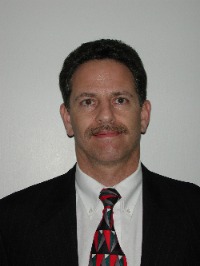| Morse Solomon |

|

"Dynamite recipe for tenderizing and sanitizing meat"

Morse B. Solomon, Ph.D.
Research Leader, Food Technology and Safety Laboratory, USDA-ARS
Beltsville, Maryland
Building 003 Auditorium
November 20, 2002
10:30 AM
Dr. Morse B. Solomon is a member of the American Meat Science Association, the American Society of Animal Science, the Institute of Food Technologists, the American Society of Nutrition, the American Association for the Advancement of Science and the American Registry for Professional Animal Scientists and has served on the Board of Directors in the American Meat Science Association, the American Society of Animal Science and the Institute of Food Technologists. He has also served on the Editorial Boards of four national/international journals. In 1983 Dr. Solomon accepted a research scientist position in the Meat Science Research Laboratory, ARS, USDA in Beltsville, Maryland and was promoted to Research Leader of the management unit in 1991.
Dr. Solomon's most notable research contributions have been in understanding the mechanisms for manipulating skeletal muscle growth and adipose tissue while improving the yield and quality of lean meat from livestock. His most recent research activities have addressed the quality/tenderness (inconsistency) problems associated with meat and food safety issues associated with meat products.
In cooperation with Hydrodyne, Inc., a patented new process/technology for tenderizing meat was developed. The process involves generating hydrodynamic pressure shock waves from the detonation of an underwater explosive charge in a containment vessel. The shock waves cause muscle fiber disruptions which in turn results in instantaneous meat tenderization and reductions in the inconsistencies in tenderness of meat products.
Dr. Solomon and his research staff recently established the conditions whereby hydrodynamic pressure technology can also inactivate both food borne pathogens and normal spoilage microorganisms found in meat products. He is leading a team of research scientists, physicists and engineers in order to optimize the performance of hydrodynamic pressure technology with the ultimate goal being to develop and commercialize a non-explosive, non-pyrotechnic pressure technology (two patents pending). A primary objective is to develop the process into a 'one-size-fits-all' system as an in-line process rather than as a batch system protocol.
His research accomplishments are documented in 160 papers, 3 patents (pending) and 6 book chapters. He has been selected as an adjunct professor in the Animal Science or Food Science Departments of five major universities.
